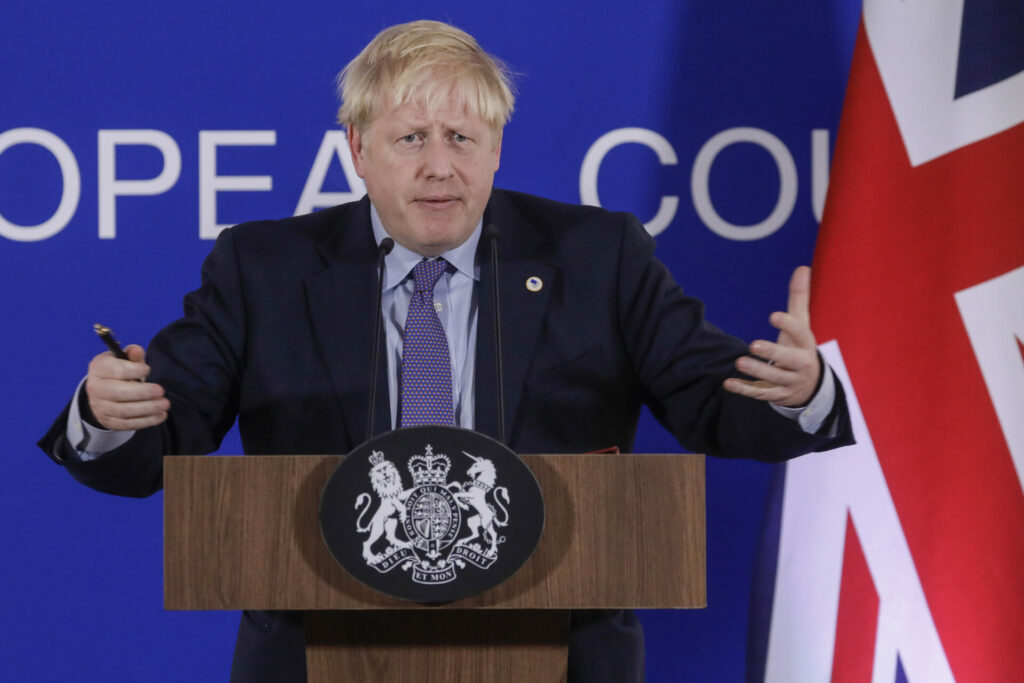After being greeted by a chorus of boos at the Queen’s Platinum Jubilee celebrations last weekend, British PM Boris Johnson survived a vote of no confidence on Monday night to remain the head of the Conservative Party and retain his premiership.
With 211 in favour of Johnson staying and 148 votes against, it was an unexpectedly devastating result for the PM despite the win. Johnson has now lost the support of 40% of his party, which is quite the departure from the "stomping majority" he won in 2019 off the back of his pledge to deliver and capitalise on Brexit.
Reacting to the result, the Tory rebels stated they are "implacably" against Johnson’s leadership, meaning they will continue to hold the struggling PM’s feet to fire on a number of issues, which could spell "the beginning of the end." Johnson, on the other hand, claimed it was a “convincing result."
The vote came after 15% of Tory MPs submitted a letter of no confidence in the Prime Minister, triggering the ballot on his leadership. If Johnson had lost, the Conservative Party would internally elect the next Prime Minister until the subsequent elections, scheduled to take place in 2024.
Anti-corruption champion resigns
Monday also saw the resignation of Boris Johnson's Anti-Corruption Champion in government, John Penrose MP, who cited the so-called "partygate" scandal, particularly Johnson’s refusal to resign after a clear breach of the Ministerial Code, as the reason for his departure.
This was further worsened by Johnson's subsequent move after the scandal to remove the words "honesty and integrity" from the code.
Earlier this year, Johnson was issued a fixed penalty notice by police over the "partygate" lockdown breaches and in the aftermath did not address the claims from an internal report which pointed to a wider culture of "failures of leadership and judgment."
Related News
- The end for Bojo? UK Prime Minister faces vote on his future
- Brits abroad ‘embarrassed’ and ‘ashamed’ to be British since Brexit
In an attempt to rally his MPs to show support for him just ahead of the vote, Johnson was bullish over the parties claiming he would "do it all again."
Ripping up civil and political rights
Johnson's supporters, including Culture Secretary Nadine Dorries and Jacob Rees-Mogg, Minister for Brexit Opportunities, have been peddling disinformation for political benefit, trying to label the no-confidence vote as a “remainer plot” against Johnson. They also argue that his management of the pandemic had been a success.
Aside from the criticism of Johnson's management both of the pandemic in light of "partygate," and Brexit in light of his plans to override the Northern Ireland Protocol, he has been chastised for pushing an illiberal post-Brexit agenda, most notably the heavy restriction on the right to protest and plans to send refugees to Rwanda if their asylum claims are rejected.
Instead of focussing on problems affecting the everyday lives of British people, such as the cost of living crisis and the economic fallout of the pandemic, Johnson has been criticised for focussing on solving "nonexistent problems" for his own survival.
While yesterday's result means Tory rebels will have to wait another 12 months before challenging the leadership again in a ballot, it has crushed Johnson's hope of sweeping "partygate" scandal under the rug. Meanwhile, governing with a large rebellion in his ranks will undoubtedly mean this debacle is far from over, at the expense of British citizens.

